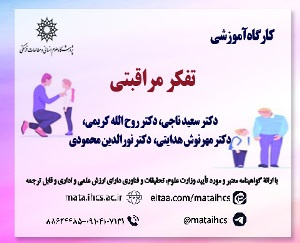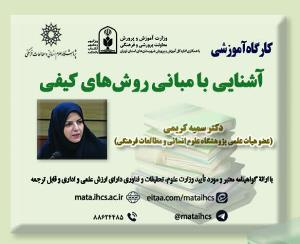اعتقاد به تقدیر الهی و نسبت آن با جهاد، توکل، صبر و رضا
آرشیو
چکیده
یکی از باورهای اساسی در دین اسلام،اعتقاد به مشیّت و تقدیر الهی است.بر اساس این باور ،خداوند دارای قدرت مطلق است و همه امور عالم به دست اوست و هیچ امری در این عالم حتی افتادن برگی از درخت جز به اذن وی رخ نمی دهد و قدر و اندازه همه امور در لوح ازلی مقدر شده و بر همین اساس در دنیا اتفاق می افتند. با این وصف، برای یک فرد مومن این پرسش اساسی مطرح می شود که در این صورت سعی و کوشش انسان چه جایگاهی پیدا می کند؟ و اگر همه چیز طبق تقدیر الهی در این عالم رخ می دهد پس ثواب و عقاب چه معنایی می تواند داشته باشد و معنای مسئولیت انسان چیست؟ نوع پاسخ به این پرسش اساسی تعیین کننده سبک زندگی دینی انسان در این عالم است. در تاریخ فرهنگ اسلامی پاسخ های متفاوتی به این پرسش داده شده است.در مقاله حاضر ابتدا با تکیه بر روایت ابن عربی، اعتقاد به تقدیر الهی مورد تبیین قرار گرفته و سپس با نگاهی کلی به برخی پاسخ ها به سوالات فوق ، بر مبنای آیات قرآنی ارتباط میان تقدیر الهی ، جهاد ، توکل ، صبر و رضا بررسی شده است و این نتیجه حاصل شده است که بر اساس اعتقاد به تقدیر الهی، نتیجه امور از ازل رقم خورده و چون ما از تقدیر الهی آگاهی نداریم لذا باید جهاد کنیم اما باید توکل کرده و نتیجه را به خداوند واگذار کنیم و در مسیر حرکت خود صبر کنیم و هر نتیجه ای که اعم از شکست و پیروزی حاصل شود رضا به تقدیر الهی داشته باشیم.مقاله حاضر به روش تحلیلی به بررسی این موضوع خواهد پرداختBelief in divine destiny and its relation to jihad and martyrdom
One of the basic beliefs in Islam is the belief in divine providence and destiny. According to this belief, God has absolute power and all the affairs of the world are in his hands, and nothing in this world, even a leaf falling from a tree, happens without his permission. The value and size of all things are determined in the eternal tablet and according to this, they happen in the world. With this description, for a believer, this basic question arises, what is the position of human effort in this case? And if everything happens according to divine destiny in this world, then what is the meaning of reward and eagle and what is the meaning of human responsibility? The type of answer to this basic question determines the religious lifestyle of man in this world. In the history of Islamic culture, different answers have been given to this question. In this article, the belief in divine predestination has been explained first by relying on the narration of Ibn Arabi, and then with a general look at some of the answers to the above questions, based on the Quranic verses. The relationship between divine predestination, jihad, trust, patience and satisfaction has been investigated, and the conclusion has been reached that based on the belief in divine predestination, the outcome of affairs has been determined since eternity, and since we are not aware of divine predestination, we must strive, but we must trust. and leave the result to God and be patient in our journey and be satisfied with God's destiny whatever result is achieved, whether defeat or victory. This article will analyze this issue in an analytical way.







